Topics

Pekka Sagner
Economist for Housing Policy and Real Estate Economics
Tel: +49 221 4981-881 Mail: sagner@iwkoeln.de- At the IW since 2018
- Studied International Business and Development and Economics at the University of Bayreuth and the Beijing Institute of Technology
- Lecturer at the Academy of German Cooperatives (ADG), the International Real Estate Business School (IREBS) and the Bonn-Rhein-Sieg University of Applied Sciences (H-BRS)
- Since 2020 doctorate at the University of Wuppertal
IW Publications
Sagner, Pekka / Voigtländer, Michael, 2021, Auswirkungen des Berliner Mietendeckels auf private Vermieter, in: IW-Trends, 48. Jg., Nr. 3, S. 45-67
Zur Studie
(in cooperation with Michael Voigtländer)
Mieten, Modernisierungen und Mieterstruktur – Vermietergruppen in Großstädten im Vergleich
IW-Report 11/2019
(in cooperation with Michael Voigtländer)
Es geht auch günstiger – Vorbild Niederlande
IW-Kurzbericht 60/2018
(in cooperation with Michael Voigtländer)
On the relevance and perspectives of commercial construction in the EU
IW-Report 32/2018
(in cooperation with Ralph Henger, Tilo Schumann)
Energetische Gebäudesanierung – Falsche steuerliche Anreize
IW-Kurzbericht 50/2018
(in cooperation with Michael Voigtländer)
Die Zahl der Ersterwerber sinkt weiter
IW-Kurzbericht 34/2018
(in cooperation with Matthias Diermeier, Markos Jung)
Wirtschaftskrise bremst europäische Konvergenz
IW-Kurzbericht 30/2018
Expertises
(in cooperation with Michael Voigtländer)
WOHNKOSTENREPORT 2019, eine Analyse von Mieten und Wohnnutzerkosten für 401 Kreise
Gutachten für ACCENTRO, 2019
(in cooperation with Hanno Kempermann, Agnes Ricci, Thorsten Lang)
Wohnen in Deutschland 2019
Studie für den Verband der Sparda-Banken e.V., 2019
(in cooperation with Ralph Henger, Michael Voigtländer)
Milieuschutz in Berlin
Gutachten im Auftrag des Vereins zur Förderung von Wohneigentum in Berlin e.V. , 2019
(in cooperation with Michael Voigtländer)
Die Erschwinglichkeit von Wohnraum – Analyse für alle deutschen Kreise
Gutachten im Auftrag der Deutsche Reihenhaus AG, 2018
External Publications
Sagner, Pekka / Voigtländer, Michael, 2022, Supply side effects of the Berlin rent freeze, in: International Journal of Housing Policy, https://doi.org/10.1080/19491247.2022.2059844
Zur Studie
More from Pekka Sagner
Supply side effects of the Berlin rent freeze
On 23 February 2020, the Berlin Senate introduced the Berlin rent freeze (‘Mietendeckel’). The law was repealed on 25 March 2021. The Berlin rent freeze was an unprecedented market intervention in the German housing market.
IW
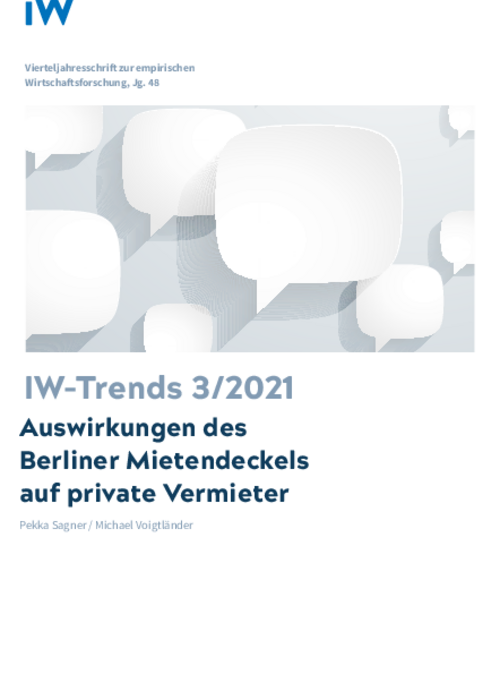
How the Berlin Rent Cap Affected Private Landlords
The effects of the Berlin rent cap on the city’s housing market were wide-reaching, with the supply of rental accommodation falling by more than half while the cap was in force.
IW
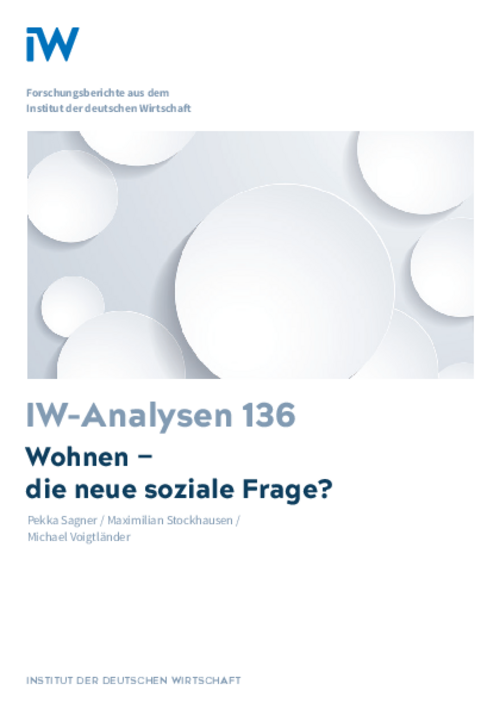
Housing – the new social question?
The sharp rise in rents and housing prices in the 2010s, particularly in the major conurbations, has led some to assert that housing is “the social question of our time”.
IW
Wohnkostenreport 2019: Eine Analyse von Mieten und Wohnnutzerkosten für 401 Kreise
The residential user cost approach allows a comparison of rental costs and regular costs incurred by a homeowner. This approach is used to determine the relative advantageousness of home ownership over renting.
IW
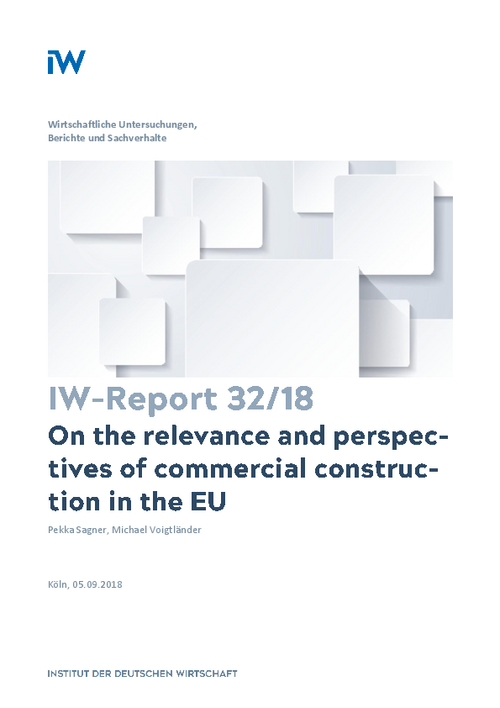
On the relevance and perspectives of commercial construction in the EU
In this paper, we present the current state of European investments in construction. Furthermore we showed how construction investments fared in comparison to overall GFCF, noting that construction investments are still below their peak levels in 2007 for both investments in dwellings and the construction of non-residential buildings and structures.
IW
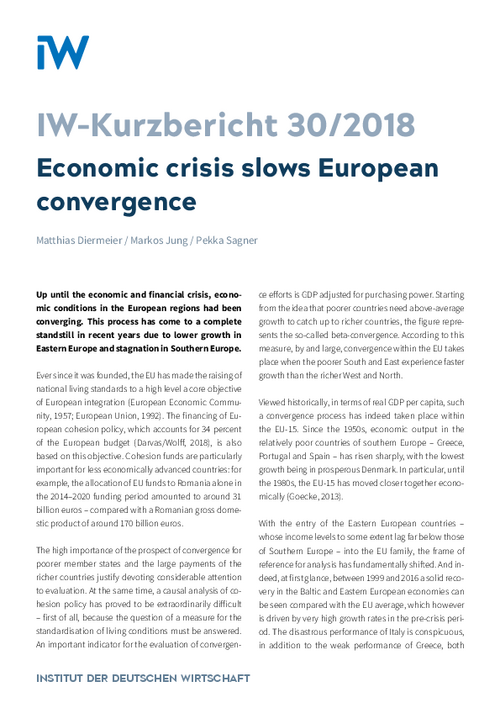
Regional growth: Economic crisis slows European convergence
Up until the economic and financial crisis, economic conditions in the European regions had been converging. This process has come to a complete standstill in recent years due to lower growth in Eastern Europe and stagnation in Southern Europe.
IW
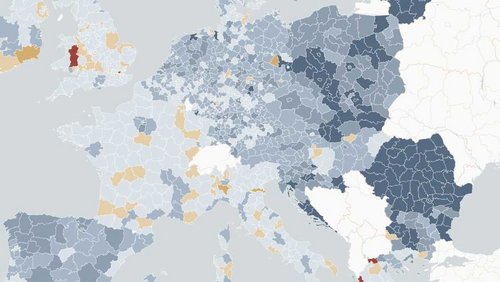
Convergence in Europe: The poorer regions are not catching up anymore
Before the economic crisis, European regions with low economic output per inhabitant grew faster than the wealthier ones. The living conditions on the continent became more similar. Since 2010, however, the process of catching-up has been stopped.
IW